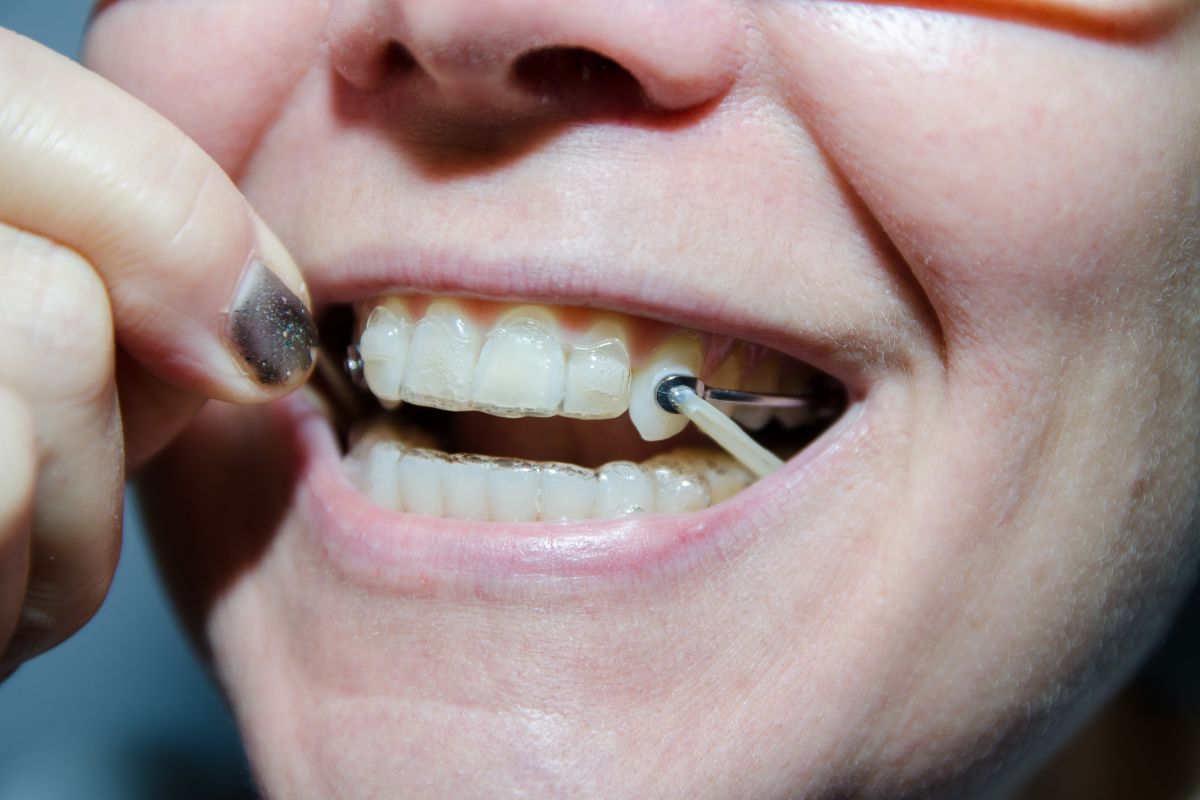

Introduction
Palatal expanders are essential tools used in orthodontic treatment to widen the upper jaw and address dental issues. They consist of a metal framework that fits across the palate, with adjustable screws or expanders at the center. By applying gentle pressure, palatal expanders gradually separate the mid-palatal suture, the cartilaginous joint that connects the two halves of the upper jaw. This separation allows for the expansion of the maxillary arch and creates space for proper teeth alignment.
Common dental conditions requiring palatal expanders include:
- Crossbite: A misalignment of the upper and lower teeth, where the upper teeth bite inside the lower teeth.
- Crowding: Insufficient space in the jaw to accommodate all the teeth, leading to overlapping or rotated teeth.
- Impacted Teeth: Teeth that are blocked from emerging wholly due to lack of space.
- Narrow Palate: A palate that is narrower than ideal, causing dental and breathing issues.
Early intervention with palatal expanders can prevent or minimize the need for more extensive orthodontic treatment later in life. It is especially beneficial during childhood when the jaw is developing and more responsive to expansion.
How Do Palatal Expanders Work?
Palatal expanders apply controlled pressure to the palate, gradually widening the upper jaw. The process of palatal expansion typically occurs over several months. Here’s an overview of the process to get Palatal Expanders:
- Consultation and Treatment Planning: An orthodontist will evaluate your dental condition and determine if palatal expansion is necessary. They will create a personalized treatment plan based on your specific needs.
- Insertion of Palatal Expander: Once the orthodontist establishes your treatment plan, they will insert the palatal expander into your mouth. It is custom-made to fit your palate comfortably.
- Activation: The orthodontist will provide instructions on how to activate the expander. This is usually done by turning a key or screw regularly, typically once daily or as directed. Each activation creates a small amount of pressure that gradually separates the mid-palatal suture.
- Monitoring and Adjustments: You will have regular follow-up appointments with your orthodontist during the expansion process. They will monitor your progress and make any necessary adjustments to ensure optimal results.
- Retention Phase: After achieving the desired expansion, a retention phase follows to stabilize the newly expanded palate. This phase involves wearing a retainer or other dental appliances to maintain the expanded position and prevent regression.
It’s important to follow your orthodontist’s instructions regarding activation, hygiene, and follow-up appointments to ensure the success of your palatal expansion treatment.
Benefits of Palatal Expanders
Palatal expanders offer a range of benefits for individuals undergoing orthodontic treatment. Here are some key advantages:
- Improved Breathing and Airflow: By widening the upper jaw, palatal expanders create more space for the nasal passages. This helps to improve breathing and airflow, particularly for individuals with breathing difficulties or sleep-related breathing disorders.
- Correcting Crossbites and Crowding: Palatal expanders can effectively correct crossbites where the upper and lower teeth do not align properly. They also address crowding by creating additional space in the jaw, allowing the teeth to align correctly and reducing the need for tooth extractions.
- Enhanced Speech Development: A narrow palate can sometimes interfere with speech development, leading to speech difficulties or lisps. Palatal expanders widen the palate, facilitating proper tongue placement and improving speech clarity.
- Facilitating Proper Jaw Growth and Alignment: Palatal expansion helps to guide the natural growth and development of the jaws. Creating adequate space allows the teeth and jaws to align correctly, improving oral function and aesthetics.
Types of Palatal Expanders
Different palatal expanders are available, each with its design and functionality. The choice of expander depends on the specific dental condition and the preferences of the orthodontist. Here are some common types:
- Rapid Palatal Expanders (RPE): These are fixed expanders cemented to the teeth. RPEs typically have a screw mechanism in the center that can be activated to widen the palate. They are often used in cases where rapid expansion is required.
- Removable Palatal Expanders: As the name suggests, these expanders are removable appliances that can be removed for cleaning and oral hygiene. They are generally used for slower and more gradual expansion.
- Fixed Palatal Expanders: Fixed expanders are attached to the teeth using bands or crowns. They provide continuous expansion and require periodic adjustments by the orthodontist.
- Hybrid Palatal Expanders: Hybrid expanders combine features of both removable and fixed expanders. They offer the convenience of removability with the stability of fixed appliances.
The choice of palatal expander will depend on factors such as the severity of the dental condition, patient compliance, and the orthodontist’s professional judgment.
Palatal Expanders for Children
Palatal expansion is particularly beneficial for children due to their jaw growth and development. Here are some key points to consider regarding palatal expanders for children:
- Age Range for Palatal Expansion: Palatal expansion is most effective during the early stages of dental development, typically between the ages of 7 and 14. This is when the jaw is still malleable and responsive to expansion.
- Early Detection of Dental Issues: Regular dental check-ups are crucial for the early detection of dental issues that may require palatal expansion. Early intervention can prevent more complex problems and reduce the need for extensive orthodontic treatment in the future.
- Factors Influencing Treatment Duration: Palatal expansion treatment can vary depending on factors such as the severity of the dental condition, patient compliance with activation, and the specific treatment plan. Following the orthodontist’s instructions and attending scheduled appointments are essential to ensure the best possible outcome.
- Importance of Regular Dental Check-ups: Regular dental check-ups throughout treatment are essential for monitoring progress, making adjustments, and maintaining overall oral health. Your orthodontist will guide you on the frequency of visits and any specific care instructions.
Interested in Getting Palatal Expanders?
Palatal expanders are valuable orthodontic tools crucial in correcting dental conditions and promoting oral health. By understanding how they work, the benefits they offer, and the available types, you can make informed decisions about your or your child’s dental care. Consult a qualified orthodontist for personalized advice and treatment options tailored to your needs. Your beautiful smile starts with a healthy and properly aligned jaw!
“A positive self-image and self-confidence can result from proper orthodontic care.”
This belief has been our foundation for over 17 years of creating beautiful, straight, and confident smiles!
With thousands of finished cases under our belt, we are confident in our ability to provide you and your family with excellent treatment delivered with expertise and care.
Plan your smile with one of the best Orthodontists in Toronto, Ontario. Schedule a virtual care or in-office appointment with us! Let’s work together to create the best smile for you and your family.
Recent Posts
-
Inside the World of Orthodontists: Education, Precision, and Transformative Treatments
The Evolution of Orthodontics: A Brief Historical Overview Orthodontics, an integral branch…
-
How Orthodontists Plan a Treatment for a Beautiful Smile
Understanding the Patient's Unique Needs A positive self-image and confidence can result…
-
Unleash Your New Smile! Here's What You Need to Know Before Braces Removal
Are you excited to see your smile transformation? Taking your braces off…
-
Traits That a Good Orthodontist Should Have
Choosing an orthodontist is half your smile transformation journey. That’s why in…
-
How Braces Can Help Fix an Asymmetrical Jawline
An asymmetrical jawline can cause concern for many individuals, affecting their appearance…
-
Can Cavities Be Reversed?
Cavities are among the most common dental issues people of all ages…
-
What to Prepare During Your First Braces Appointment
Are you about to embark on your journey to a beautiful smile…
-
Taking Care of Baby Teeth: A Comprehensive Guide for Parents
Caring for our children's health is one of our most crucial responsibilities…
-
What are Brace Elastics?
If you or someone you know is undergoing orthodontic treatment with braces,…
-
Difference Between an Overjet and Overbite: A Comprehensive Guide
Two orthodontic terms that often confuse our patients are "overjet" and "overbite."…







 Instagram
Instagram
